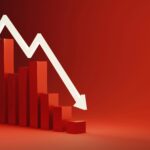The pandemic has changed the work status quo, with many people now working remotely or in hybrid arrangements to stop the spread. However, new CivicScience findings show that despite this heightened concern for health, most Americans continue to work while sick on the job.
Surveying 1,813 currently employed U.S. adults, just over one-third (34%) said that they actually took a sick day the last time they came down with an illness and had to work.* The majority of adults worked through being sick: 18% are regular remote workers who continued to work from home, while 13% are on-site workers who stayed home instead of going in. Alarmingly, 35% went into their work location despite being sick.
*Results exclude employees who answered they rarely or never get sick.
Compared to pre-pandemic trends from a 2019 report, the percentage of workers inclined to take sick days has not budged. What has drastically changed, as expected, is the percentage of workers who reported to their physical work location while sick, which was previously 54%, while just 12% worked from home.
This decrease is of course due to more remote work, as well as COVID-19 restrictions in active worksites. So although more people have shifted to working remotely, they are still just as likely to work through sickness, now at home.
Remote Workers Take Fewer Sick Days
As proposed in a recent Axios article, “Remote work means you can’t get colleagues sick, which has raised the bar for how sick is sick enough to take a day off.” The survey findings support this statement, revealing that remote workers were nearly half as likely to take an actual sick day compared to people who work at a physical location or office. More than three-quarters continued working while sick.
Getting Sick on the Job Is Stressful
Ultimately, the survey results show that regardless of how people work, Americans are just as likely to go to work sick as they were before the pandemic. Some simply may not have sick days at their disposal, such as many service industry jobs, where getting sick can mean lost pay. Others may feel pressured to show up, even if that means logging in at home, and even if that also means performance and productivity suffer (“presenteeism”).
Getting sick is indeed a source of anxiety for the majority of working adults. Sixty-two percent of workers feel stressed or worried about having to take a day off or miss work when they’re sick. Nearly 30% say they feel “very stressed” about the prospect of missing work.
How does stress relate to getting sick on the job? Results show that the majority of all workers, regardless of whether they choose to take sick days or not, feel some level of stress about getting sick on the job. However, people who worked from home while sick are the least stressed – even more so than those who took sick days.
In contrast, people who went into a physical work location while sick are the most likely to experience higher levels of stress. In other words, higher stress levels correlate with people who may not have the option to work remotely.
Job Positions and Age
Certain job professions are far less likely to take sick days. These include craftsmen and laborers, followed by those in operations/sales and computer/technical or medical fields. People who work in operations/sales are the most likely to work from home when sick. In contrast, those in management and the service industry are the most likely to go into the workplace while sick, but are also the most likely to take time off.
The younger you are, the less likely you are to take sick days. Nearly 60% of 18- to 24-year-olds and 45% of 25- to 34-year-olds said they worked from home while sick – compared to just 18% of workers aged 55 and older.
Working through sickness generally means slower recovery time, reduced well-being and decreased productivity, all compounded by feelings of stress. Yet far more people continue to work through a bout of sickness than take time off, particularly Gen Z and Millennials. Remote work makes it easier to power through sickness, yet having to go into a physical workplace while sick (especially during COVID-19) may be the worst scenario of all.








